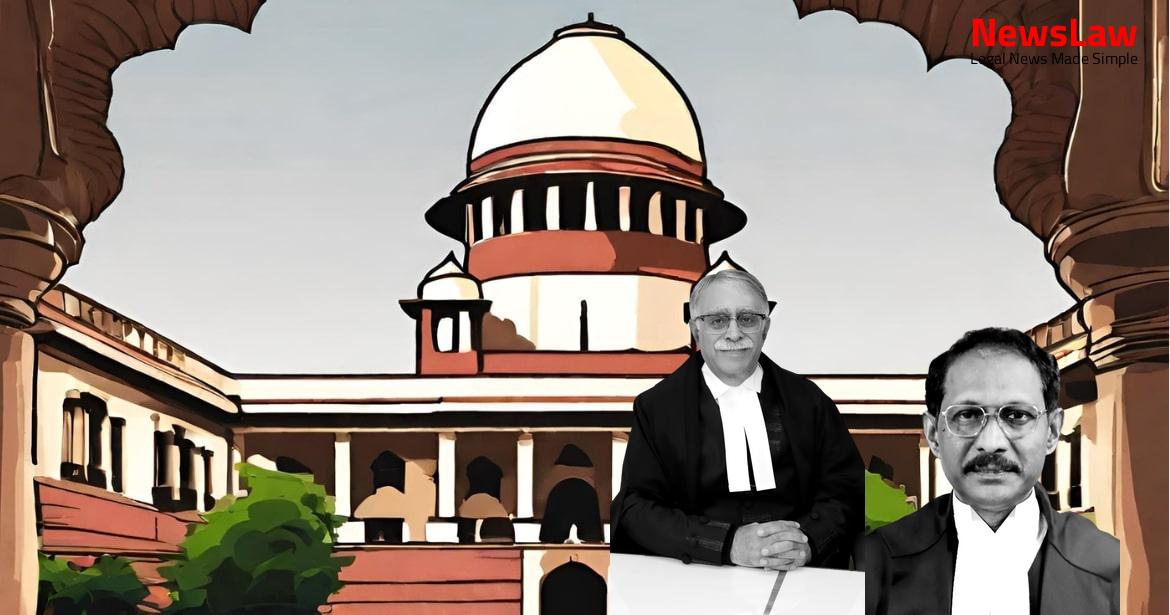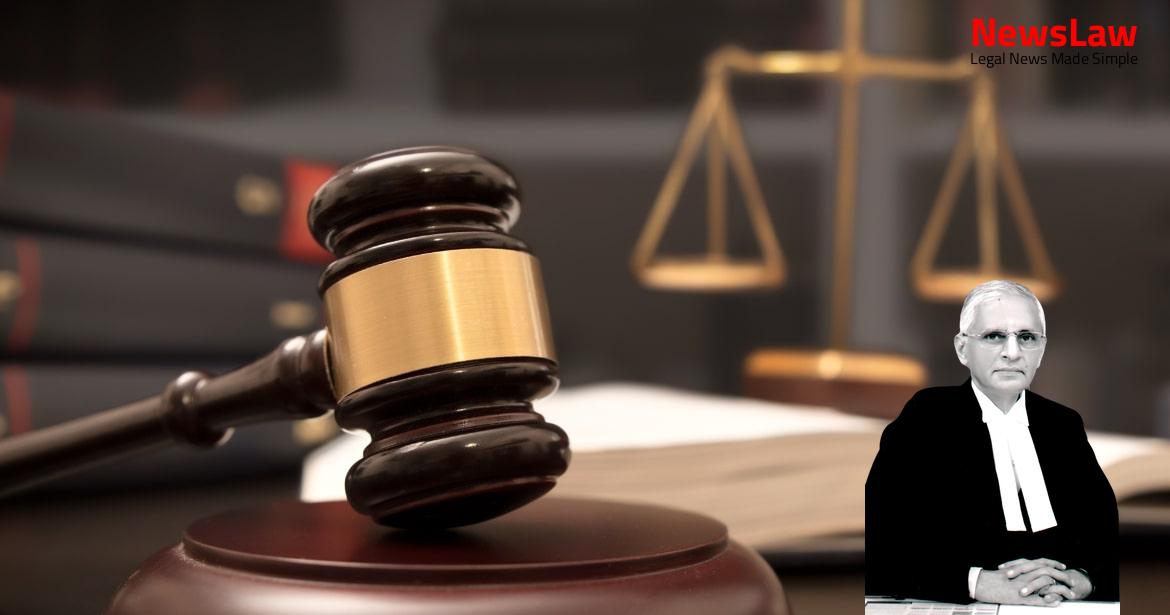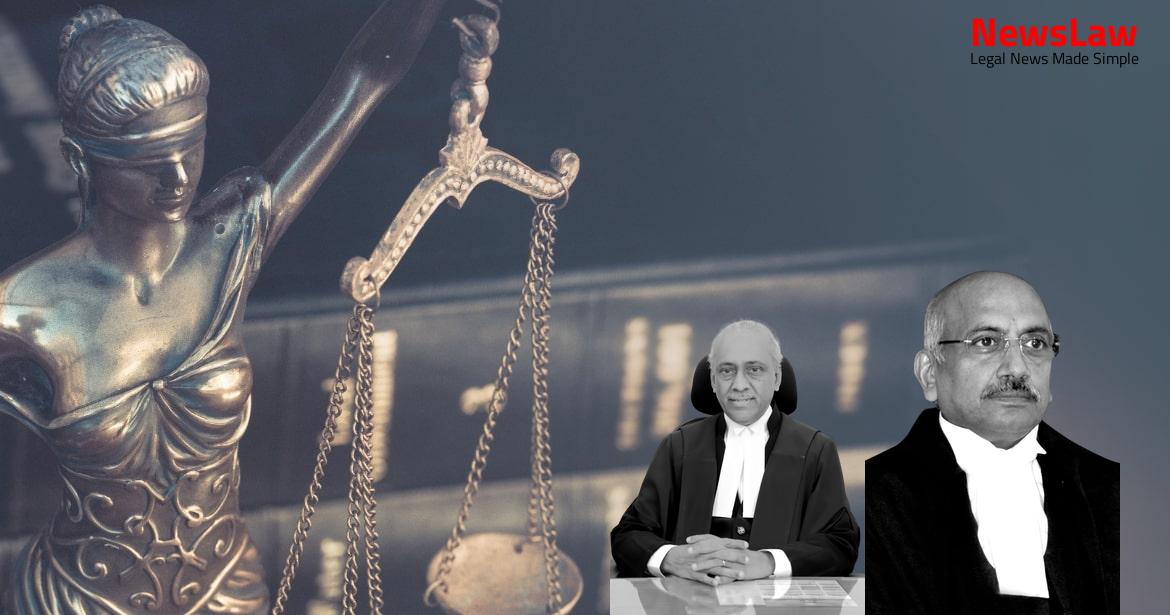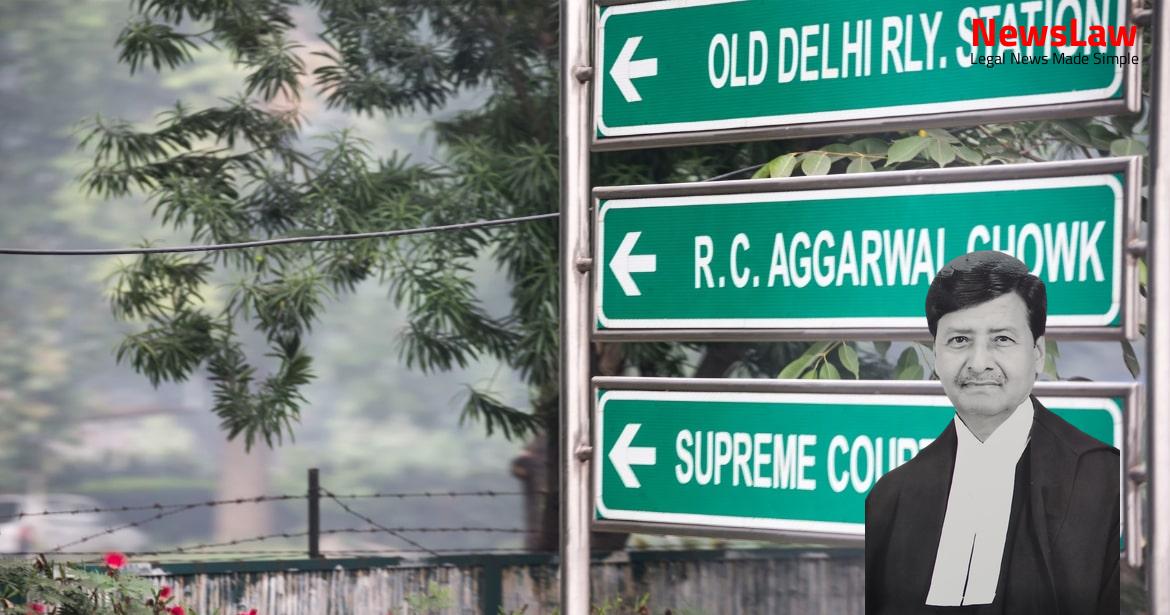In a pivotal legal case, the Supreme Court of India adjudicated on the application under Order VI Rule 17 CPC in the matter of Smt. Suman Agarwal (Bindal) v. Smt. Katoribai. The Court’s decision regarding the amendment of pleadings has far-reaching implications for the parties involved. Dive into the details of this case to understand the complexities of the legal system and the nuances of the amendment process.
Facts
- The High Court allowed the application under Order VI Rule 17 CPC filed by Smt. Suman Agarwal (Bindal) to amend the plaint, setting aside the order dated 14 March, 2018 passed by the Civil Judge, Class-2, Gwalior.
- The amendment application included questioning the genuineness of the Will executed by Smt. Katoribai.
- A temporary injunction was imposed to prevent creation of third-party rights during the dispute over House No.27/1695 in Gangamai Santar, Murar, District Gwalior, M.P., purchased through a registered sale deed on 1 January, 1987.
- Smt. Katoribai passed away on 5 March, 2013, leaving behind the disputed property.
- The High Court’s decision to allow the amendment to the plaint filed by the siblings, children of Smt. Katoribai, is the main issue in this appeal.
Also Read: High Court of Madhya Pradesh Reverses Judgment on Charges against Accused in Assault Case
Arguments
- Respondents questioned the Will itself
- Partition sought for moveable properties mentioned in the Will
- Application not based on any subsequent event, plaintiff already aware of facts
- Amendment sought post commencement of trial not maintainable, relying on Vidyabai & Ors v. Padmalatha & Anr
- Civil Court rejected application on 14th March, 2018
- Observation that proceedings were well on their way and application delayed by nearly a year and three months
- Plaintiff lacked due diligence in the case
- Application not based on any subsequent incident
Also Read: Joint Liability and Common Intention: Supreme Court Verdict
Analysis
- The Court should adopt a liberal approach in granting leave to amend pleadings within statutory boundaries.
- Amendment must not change the cause of action to set up an entirely new case different from the one in the original plaint.
- Determination of the genuineness of the Will is crucial in deciding the issues between the parties.
- The application for amendment should be considered in light of changed circumstances if it is allowed post the trial’s commencement.
- The High Court erred by allowing the application seeking leave to amend pleadings, possibly contravening statutory language.
- Smt. Katoribai, who passed away in 2013, was the one paying house taxes for the disputed property during her lifetime.
- The dispute centers on procedural aspects with plaintiffs and specific defendants having equal shares in the property.
- The proposed amendments are primarily aimed at questioning the validity of the Will and expanding the scope of adjudication to include movable property.
- Amendment of pleadings can be allowed at any stage.
- Amendment must be necessary to determine the real question of controversy inter se parties.
- The Court may allow amendment of pleadings in such manner and on such terms as may be just.
- No application for amendment shall be allowed after the trial has commenced unless the Court concludes that despite due diligence, the party could not have raised the matter before the commencement of the trial.
- Order 6 Rule 17 of the CPC allows for the amendment of pleadings at any stage of the proceedings.
- Amendments should be granted if they are necessary for determining the real question in controversy and do not cause injustice or prejudice to the other party.
- Amendments should be allowed for effective adjudication of the dispute to avoid multiplicity of proceedings, as long as they do not result in injustice to the other side.
- Amendments should not be allowed if they involve withdrawing a clear admission that confers a right on the other side, raise a time-barred claim divesting the other side of a valuable accrued right, completely change the nature of the suit, are malafide in nature, or cause the other side to lose a valid defense.
- All amendments satisfying the conditions of not causing injustice to the other side and being necessary for determining the real questions in controversy should be allowed.
- Amendments should only be refused if they would cause the other party an injury that cannot be compensated by costs.
- The principles outlined for the application of Order 6 Rule 17 have been clarified through various judicial precedents.
- The trial should not be stalled by challenging the framing of issues as it would lead to multiplicity of litigation.
- Order VI Rule 17 of CPC aims to prevent multiple avenues of litigation under one dispute.
- Determining the genuineness of the Will is necessary for the partition of the Suit property.
- The High Court’s order allowing the amendment to set aside the Trial Court’s refusal was justified.
- The time gap between submitting the written statement and seeking leave to amend was not adequately explained by the defendant.
- Delaying the decision on the Will would further prolong the resolution of the case.
Also Read: Analysis of Sealed Cover Procedure in Government Servant Promotion Case
Decision
- The Trial Court will decide all issues, including the genuineness of the Will, promptly.
- The appeal has been dismissed.
- The amendment has been allowed.
- It is clarified that the discussion is related to the application under Order VI Rule 17 CPC and does not indicate any opinion on the case’s merits.
- A copy of the judgment will be sent to the Registrar of the High Court for further action.
- Any pending applications will be considered resolved.
Case Title: DINESH GOYAL @ PAPPU Vs. SUMAN AGARWAL (BINDAL) (2024 INSC 726)
Case Number: C.A. No.-010812-010812 – 2024



